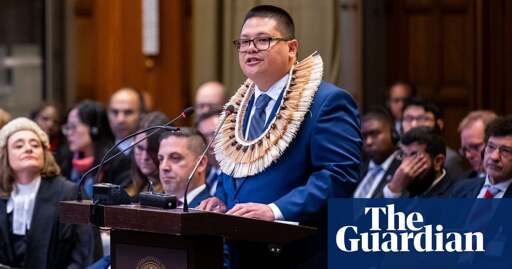The village of Veraibari in Papua New Guinea sits at the mouth of the Kikori River, just before it opens into the Pacific. “Veraibari was so beautiful when I was a child,” remembers Ara Kouwo, 52. “I used to walk down to the beach passing under mango trees.”
Kouwo’s testimony was one of many included in written submissions to the international court of justice (ICJ) before hearings that began last week and continue until Friday in a landmark case in which the court has been asked to give an advisory opinion on “the obligations of states in respect of climate change”.
In the document, an annexe to a submission from the Melanesian Spearhead Group, a regional subgroup that includes Fiji, Papua New Guinea, Solomon Islands and Vanuatu, Kouwo describes seeing the seas rise over his lifetime, destroying precious coconut forests, traditional burial grounds and homes.
Villagers from Veraibari have already been forced to move four times. Caught between a river and an ocean, they are now planning a fifth and final relocation. “The seas are corning into our houses, which are already built on tall wooden post foundations,” Kouwo said. “If this relocation fails, we have nowhere else we can go.”


